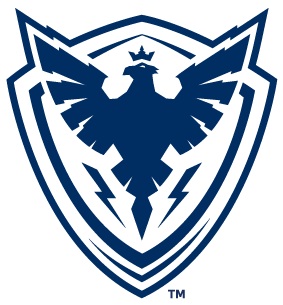“I don’t want anybody to feel sorry for me”: How Mark Kirton is fighting ALS with the hockey world behind him
Mark Kirton was vacationing in the Bahamas in 2015 when something odd happened. While reading Bob McKenzie’s Hockey Confidential on the beach, his right bicep began to twitch. He hadn’t just finished a workout and didn’t recall ingesting any caffeine, so it was bizarre that he was experiencing this sudden tremble. At the same time, he noticed his right hand began to weaken, prompting him to investigate further.
For the next two and a half years, Kirton visited rheumatologists and naturopaths and had extensive blood work done, trying to get to the root of the mysterious problem. He even travelled to Phoenix, Ariz., to seek advice from physicians at the famed Mayo Clinic’s satellite location.
In April 2018, he was given the most devastating news of his life at Toronto’s Sunnybrook Hospital; he was diagnosed with amyotrophic lateral sclerosis (ALS), a neurodegenerative disease popularly known as Lou Gehrig’s disease.
“Your whole world comes crashing down in about 10 seconds,” Kirton, now 63, said from his home in Oakville, Ont. “The first thing that pops into our head is, ‘how are we going to tell the kids?’”
Kirton’s three children, who at the time ranged in age from 13 to 26, were top of mind for him and his wife, Lisa.
“I don’t want anybody to feel sorry for me,” Kirton remembered of his mood post-diagnosis. “Even though it’s humbling, I just wasn’t going to change and I was going to be positive and not allow any negativity to enter my DNA.”
The disease moved around Kirton “like a clock”, starting in his right arm, moving slowly to his left arm, travelling to his left leg, eventually culminating in his right leg. While he no longer has any strength in his legs, he’s able to breathe and swallow without much difficulty, a silver lining an eternal optimist like Kirton is savouring.

Mark Kirton, shown here playing for the Toronto Maple Leafs during the 1980-81 season, appeared in 266 career NHL games and scored 57 goals from 1979 to 1985. He retired in 1989. (Photo: Robert Shaver, Buffalo Sabres)
“If it stays in my limbs, I’m okay,” Kirton said cheerfully with a slight hearty chuckle.
Ill health was not seemingly in the cards for Kirton, who first rose to prominence as a plucky, sturdy forward with the Detroit Red Wings, Toronto Maple Leafs, and Vancouver Canucks in the 1980s. Before being drafted 48th overall in the 1978 NHL Amateur Draft, the Regina, Sask., native spent three seasons with the Peterborough Petes, scoring 67 goals and adding 106 assists in 181 OHL games. He was notably part of the extremely tight-knit 1978 Petes team that made it to the Memorial Cup final.
Though he’d been working as a realtor since his retirement in 1989, he remained active. Before being diagnosed, he didn’t even know much about the disease outside of its iconic ties to the Yankee slugger.
Still, he’s gotten involved, joining ALS Canada and ALS Action Canada this past year. These days, he regularly tweets about ALS awareness, enlisting the help of hockey legends Doug Gilmour, Paul Henderson, Mike Gartner, and others to get his message out. A purple shirt reading “Help Kirts End ALS” was even shown off during a Hockey Night in Canada broadcast in May. Since his diagnosis, Kirton alone has raised almost $70,000 for ALS Canada.
At this point, the prognosis for ALS patients remains bleak. Sure, there’d been some traction on government support for research in the form of Motion 105 in the Canadian House of Commons in 2017, but efforts to nail down a definitive cure for the disease have largely stalled in recent years.
“At the end of the day, we need people’s help to push,” Kirton communicated frankly.
Since Gehrig’s death from ALS in 1941, studies suggest that 80% of people die within two to five years of diagnosis. In Canada, there are about 3,000 people suffering from ALS every year, with roughly 1,000 people dying and 1000 new people diagnosed annually.
Of course, none of that seems to have stopped Kirton from remaining hopeful. After all, he doesn’t just need to be courageous for himself, but he also needs to be brave for his friends, his former teammates, his fellow patients, and, most importantly, his family. To illustrate his outlook, Kirton used a clever, perfectly timed hockey metaphor.
“I have no idea how the third period, per se, is going to play out,” Kirton said, with a lump in his throat but a smile on his face. “But, I’m certainly going to will myself to last as long as I can with this.”
With Major League Baseball recently holding its inaugural Lou Gehrig Day on June 2 and increasing awareness, ALS patients have, at the very least, a glimmer of hope in their relentless fight against the disease. With inspiring figures like Kirton in their corner, a cure is now more of a reality than ever before.
Donations can be made to ALS Research at Sunnybrook in Mark Kirton’s name towards the fundraising goal of $50,000. Sponsorship donations can also be made to “Team Kirts” to support the Walk to End ALS.










































































